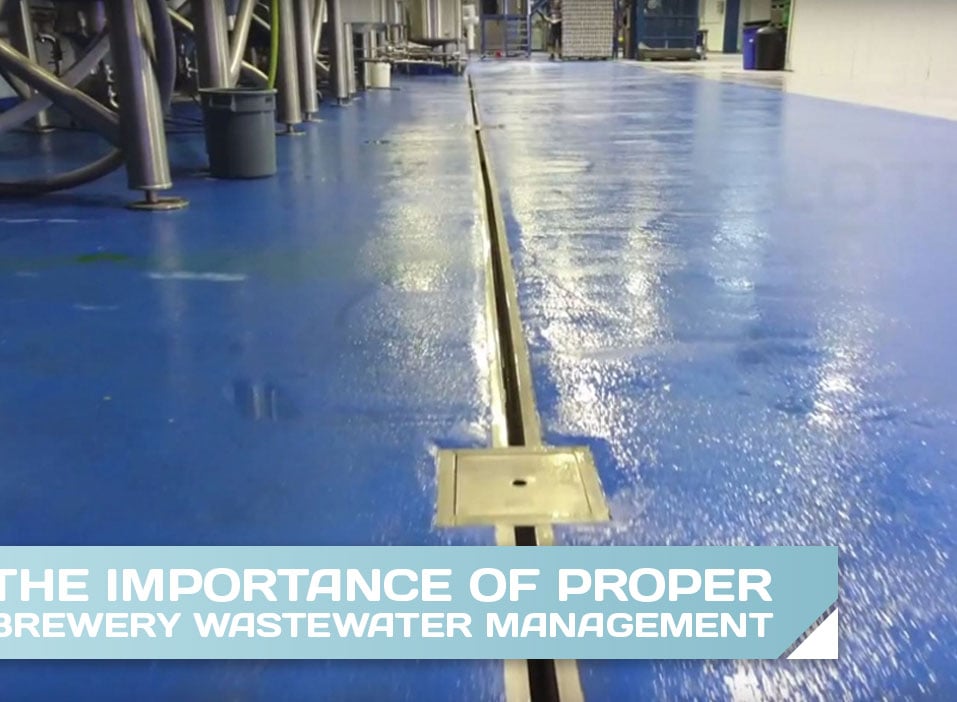
When it comes to beverage facilities like breweries, proper wastewater management should stay at the forefront of every brewer’s mind. Even though breweries work with rather basic ingredients, their combination can have a negative impact on the environment and cause countless issues when disposed. It is essential that there is a reliable brewery wastewater drainage system in place at all breweries, big and small.
Proper wastewater management will help ensure the brewery stays on top of any legal expectations, so they will not have to stop operations. Here are some important things to note about brewery wastewater and the best drainage option available.
Harmful to Local Water Supply
Up until 1972, there were no real rules on brewery wastewater management. One could simply dump any wastewater in local rivers with no repercussions. While this may not sound bad, all brewery wastewater has similar characteristics: high sugar and alcohol content, a high temperature, low pH, and a potential for high solids.
This polluted water would then make local waterways unsafe for plant and marine life. Combined, these ingredients also create a high BOD, or biochemical oxygen demand, which creates more work for wastewater treatment plants—and higher electric bills—to clean it and make it safe to return to waterways.
The Clean Water Act of 1972 made it illegal for breweries to dump their wastewater into local waterways, and required that they have a brewery wastewater drainage system in place to handle their wastewater.
Brewery Wastewater is Corrosive
Another important thing to note is that due to the high pH level in brewery wastewater, it can be fairly corrosive to both the brewery’s equipment and the city’s pipes and drains. Of course, the pH levels can fluctuate during the different stages of brewing, and the longer it sits, the more it will begin to balance out. However, besides the regulations set forth by the Clean Water Act, some cities also place restrictions on breweries regarding the PH limits of their wastewater. It is important to know any limits that exist to ensure wastewater gets managed properly.
Additionally, there is a concern for hydrogen sulfide gas, another corrosive material produced by brewery wastewater. This gas is strong and capable of eating through materials including concrete and rebar. However, other materials such as plastics and stainless steel can work well for both piping and pumping materials.
Solids in Wastewater
(Photo by: craftbrewingbusiness.com)
Solids are the other major issue posed by brewery wastewater, though they are much easier to deal with. Any solid waste ends up becoming sludge in a wastewater plant, which requires removal.
While it is not necessarily a difficult thing to handle, it is a time-consuming process for wastewater plants. Though sometimes solids getting into wastewater is difficult to avoid, the right drainage system can ensure most solid waste does not go through with everything else.
The Right Drainage System
Breweries should take special care in choosing a brewery wastewater drainage system. While a traditional trench drain is one option, a Slot Drain system is a newer, more advanced one to consider. Slot Drain systems are made using stainless steel, an incredibly strong and durable material, capable of withstanding the nature of brewery wastewater and Class F loads. Additionally, a Slot Drain channel is smaller, making it more difficult for solids to slip through and clog pipes.
Another major benefit to the Slot Drain systems is that they do not use grates, like a traditional trench drain. Grates are heavy and difficult to move when it is time to clean the drain, so much so that it can result in worker injuries. There is also the potential for grates to break over time due to corrosion and bearing too much weight. Grates also create a larger potential for injuries and additional costs like repairs, replacements, and worker compensation, should an injury occur. These Slot Drain systems can also feature a catch basin, which will help ensure solids do not get too far through the drainage system.
Managing Your Wastewater
Brewery wastewater management is an important topic for breweries at any level, be they homebrewers or commercial brewers. With the Clean Water Act in place, and individual regulations set forth by different states and cities, it is essential that breweries stay on top of their wastewater management.
There are a number of different drainage options available, but when it comes down to it, brewers should go with the best options on the market, and that includes Slot Drain. It is a highly durable, stainless steel design that meets NSF standards Fand will do any brewery proud.

